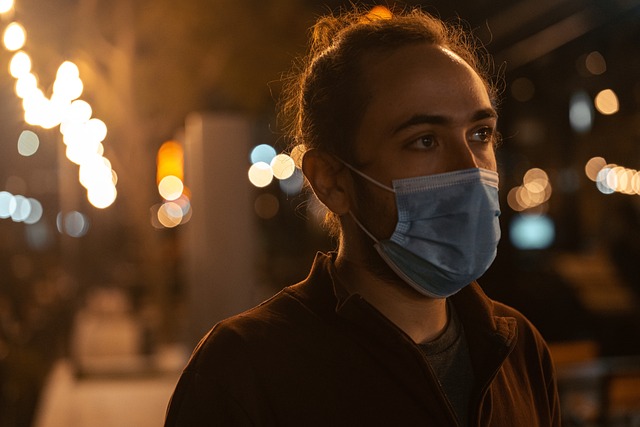High-filtration face masks are a key piece of personal protective equipment (PPE) that can provide protection against various particles, including dust, smoke, and other potentially harmful airborne substances. These masks are designed to filter out a high percentage of particles, offering a higher level of protection compared to lower-filtration masks.
There are several benefits to using high-filtration face masks, including:
Improved respiratory protection: High-filtration masks can help to reduce the inhalation of potentially harmful particles, which can be especially important for individuals working in environments with high levels of dust or other pollutants.
Enhanced protection against allergens: For individuals with allergies, high-filtration masks can provide an additional layer of protection against allergens, such as pollen and pet dander.
Increased comfort: Many high-filtration masks are designed with features that help to improve comforts, such as adjustable straps, nose clips, and breathable materials. This can be especially important for individuals who need to wear a mask for long periods of time.
Greater durability: High-filtration masks are typically made from higher-quality materials that are more durable and resistant to wear and tear. This can make them a more cost-effective option in the long run, as they may need to be replaced less frequently.
When choosing a high-filtration face mask, it’s important to consider the specific needs of your environment and the level of protection you require. Some masks are designed specifically for use in industrial or construction settings, while others are more suitable for use in medical or laboratory settings.
Different Types
There are several types of high-filtration masks available, each designed for specific purposes and environments. Some common types of high-filtration masks include:
N95 respirators: N95 respirators are a type of high-filtration mask that is certified by the National Institute for Occupational Safety and Health (NIOSH). These masks are designed to filter out at least 95% of airborne particles, making them ideal for use in environments with high levels of dust, smoke, and other potentially harmful substances. N95 respirators are typically used in healthcare and industrial settings.
P100 respirators: P100 respirators are similar to N95 respirators, but are designed to filter out at least 99.97% of airborne particles. These masks are typically used in environments with very high levels of particulates, such as construction or demolition sites.
FFP3 masks: FFP3 masks (also known as N99 masks) are a type of high-filtration mask that is certified by the European Union (EU). These masks are designed to filter out at least 99% of airborne particles, making them suitable for use in environments with high levels of dust and other pollutants.
Surgical masks: Surgical masks are a type of high-filtration mask that is commonly used in medical settings. These masks are designed to protect healthcare workers and patients from the spread of infections and are made from materials that are resistant to fluid penetration.
It’s also important to consider the fit of the mask. A mask that doesn’t fit properly may not provide the desired level of protection, as particles can still enter through gaps around the edges. Look for masks that are adjustable and have a secure fit to ensure optimal protection.
Counterfeit face masks
Counterfeit face masks can be a serious concern, as they may not provide the same level of protection as genuine masks. Here are some tips for spotting counterfeit masks:
Check the packaging: Counterfeit masks may be packaged differently than genuine masks, with different colors, fonts, or logos. Look for any inconsistencies in the packaging that may indicate a counterfeit product.
Check the materials: Genuine masks are made from high-quality materials that are designed to filter out particles and provide a secure fit. If the mask feels flimsy or the materials appear to be of low quality, it may be a counterfeit.
Check the certifications: Many high-filtration masks, such as N95 respirators, are certified by organizations such as the National Institute for Occupational Safety and Health (NIOSH) or the European Union (EU). If a mask claims to be certified but doesn’t have the proper markings or certifications, it may be counterfeit.
Check the price: Counterfeit masks may be sold at significantly lower prices than genuine masks. If the price seems too good to be true, it’s worth doing some additional research to verify the authenticity of the product.
Buy from a reputable source: One of the best ways to avoid purchasing a counterfeit mask is to buy from a reputable supplier. Look for suppliers that have a good reputation and that are known for selling authentic products.
If you suspect that a mask is counterfeit, it’s important to avoid using it and to report the issue to the appropriate authorities. Using a counterfeit mask could put your health and safety at risk and may not provide the level of protection that you need.
In conclusion, high-filtration face masks are a valuable piece of personal protective equipment that can provide enhanced protection against a wide range of particles and allergens. These masks are suitable for use in a variety of environments, including healthcare, industrial, and construction settings, and are available in a range of types and styles to suit different needs. When choosing a high-filtration mask, it’s important to consider the specific requirements of your environment and the level of protection you need, as well as the fit and comfort of the mask. By using a high-filtration mask and following the manufacturer’s guidelines for use and maintenance, you can protect yourself and others from potentially harmful substances and improve respiratory health.

